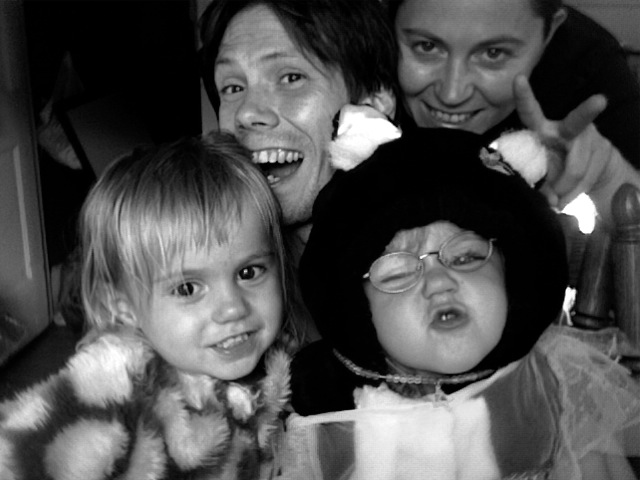We have been waffling on doing very expensive vision therapy for Marie. She has "lazy eye" one eye turns in when she focuses on near objects. It's pretty common we've been dealing with it with glasses and a patch since she was a baby.
But, the science behind it is not ho hum. The eye turns inward because the brain shuts off the eye. The muscles relax the eye turns in. She is not seeing out of it. The brain's visual system does this because it can't see unless it turns down the level of conflicting data and so it compromises by switching to one eye.
The results are loss of binocular vision. Shut one eye playing darts or aligning something and you'll see some of the visual information that is lost when you only have info from one eye to work with. It effects her gross motor skills, balance skills, fine motor abilities and other areas of her brain and body. The dilemmna is there are 2 camps in how to treat lazy eye and a brain that hasn't learned/ developed its visual system. One is patching the strong eye ( losing binocularity) and wearing strong glasses. This is the accepted- insurance paid treatment. The other is not patching the eye- encouraging binocularity, wearing weaker glasses so the eyes work harder and doing vision specific exercises with a developmental vision therapist.
Marie does occupational therapy with a therapist because she has sensory integration issues. Her brain does not organize and use sensory information as well as other kids her age. Her main issues are auditory discrimination, tactile discrimination, gross and fine motor abilities, and vestibular issues (balance, motor planning, arousal level- basically actions dealing with movement and gravity). The vestibular organ is a part of the inner ear that detects vibration and damage to the vestibular organ highly corrolates to deafness and hearing problems. The vestibular system is a brain system at the base of the brain that works primarily to control eye movements and keep us upright.
It is all connected. Yet insurance will not pay for vision therapy. We had an appointment with our old optomotrist who will not continue treating Marie if we stop patching and use the glasses prescribed by the developmental vision therapist. Both sides feel very passionately that their stance is correct.
We have seen amazing changes in Marie due to her occupational therapy that stimulated her vestibular system, tactile senses and auditory system. So, we knew in our gut and by watching our child that she is changing- responding! to this sesnsory focused treatment.
But, it is pricey. Life without insurance is a scary place.
Today we decided we really need to do those weekly visits. It boiled down to - if you take the money part out of the equation what would we do- and we knew the answer.
It is frightening to really think about how we are going to be spending. It's really going to change our lifestyle, but it is so relaxing to just do the right thing. And, I feel the power of cliches burning in me like when you have to do something you can. and that makes all the difference in life.
We love you kid.


Oh, gosh! I LOVE that picture, Jess! She's such a cutie! Insurance sure is a pain sometimes. I hope you can get it all figured out and get some fantastic results from the therapy!
ResponderBorrar